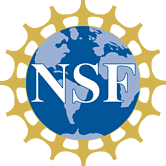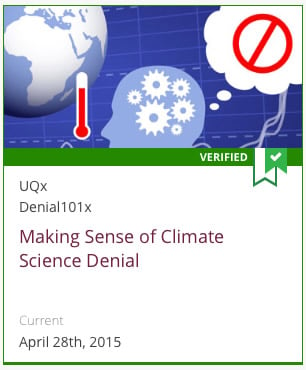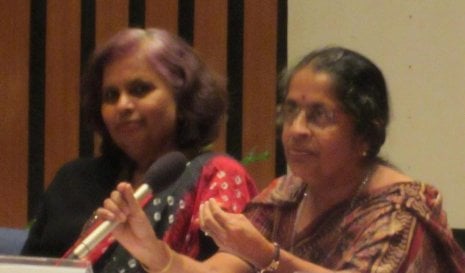As part of its goal of outreach to the local community and promoting STEM — and chemistry in particular — to young people from low socioeconomic backgrounds, the MTU student chapter of the National Organization for the Professional Advancement of Black Chemists and Chemical Engineers (NOBCChE) recently organized an outreach event for the high school chemistry class of Baraga Area Schools.
A hands-on explorative activity on paper chromatography was the focus of the outreach event, introducing students to the wide array of applications of chromatography as a separation technique. After introducing students to the concept of chromatography, students were able to see it come alive by separating various colored inks into their constituents. After this introductory activity, students used their chromatography skills to do some forensic analysis on an ink sample and pens from various “suspects” to see who was responsible for defacing a very expensive book from the school library. Finally, the volunteers engaged the students in a discussion to synthesize their observations and draw out the big scientific ideas.
The students were very focused, interactive, and excited about the activities. Some of them, when asked to comment on the activity, noted that it was engaging and insightful. One even said, “This is so cool and fun.”
NOBCChE hopes to continue to get out in the local schools and open up the wide world of chemistry to area students. See photos from the outreach event.
Michigan Tech graduate students in chemistry and chemical engineering — Sodiq Waheed, Kobina Ofori, Parya Siacheshm, and Monica Nyansa — organized this outreach event with NOBCCHE advisor Jeremy Brown (Chem). The event was funded by the NOBCChE K-12 Initiative.
This post was originally published in the Michigan Tech Chemical Engineering News blog on May 26, 2022.
 Group Faculty Visit to Washington, DC
Group Faculty Visit to Washington, DC
For the past five years, Michigan Tech deans and the vice president for research have sponsored a group visit to Washington, D.C. for early-career research faculty. To date, 70 Michigan Tech faculty and administrators have participated.
Trip participant, Loredana Valenzano shared these comments about the trip:
“What I enjoyed most was having the feeling that, indeed, PDs [program directors] and POs [program officers] are there to help, and to provide valuable guidance especially to those of us who are trying to build a career in the STEM in times where funding is decreasing and the competition is high. The availability to talk and somehow the capability to alleviate frustrations and anxieties which the people we had the chance to interact with provided, was a pleasant and encouraging revelation. I believe that having the occasion to see with our own eyes how the big machine on the East Coast works is absolutely a key aspect to shoot for success.”
 Professor of Chemistry Sarah Green was quoted by ThinkProgress about her contributions to the edX on-line course “Making Sense of Climate Science Denial.”
Professor of Chemistry Sarah Green was quoted by ThinkProgress about her contributions to the edX on-line course “Making Sense of Climate Science Denial.”
The edX course, offered by the University of Queensland, Australia, concerns theories of climate science denial, including myths, psychological and social drivers, and the influence of climate denial on public perceptions of climate change.
Green was quoted in the ThinkProgress Climate Progress article “The Massive New Online Course That Every Climate Science Denier Should Be Very Afraid Of,” stating that “educating people about facts is not sufficient.” Green, who contributed four lectures to the course, said this is especially the case when political or industry groups can “bamboozle them” with easily digestible “pseudo-facts.”
edX courses are MOOCs, or massive open online courses. “Making Sense of Climate Science Denial” is a free 7-week course taught by 13 instructors.

Women may be an underrepresented group in the STEM fields (Science, Technology, Engineering and Math) at Michigan Tech, but Pushpalatha (Pushpa) Murthy is doing something about it—not only at Tech, but nationally and internationally. A professor of chemistry at Michigan Tech, she is currently working at the National Science Foundation (NSF) as program director in the Division of Graduate Education. She has been involved with the Graduate Research Fellowship Program (GRFP) and the NSF Research Traineeship (NRT) program. She is also in charge of GRFP outreach activities to historically black colleges and universities.
Murthy recently worked with women in STEM in India. “I’ve always been interested in underrepresented groups in the STEM field,” states Murthy. In India, she focused on faculty and their professional development.
Traveling to both New Delhi in the north of India and Bangalore in southern India, Murthy and other leaders ran workshops for women in STEM, including programs like Career Launch and Acceleration, Factors that Impact Women’s Careers and The Art of Effective Negotiation. Murthy says the women faculty members were motivated and excited to participate in these workshops, as this was the first time they were attending workshops focused on their own advancement.
“Most of the research on this topic has been conducted in the United States,” she explains. “Most other countries do not have research data on issues women in STEM or other careers face. International women are very interested in the subject and want to know how the data apply to their situation.”
Her passion for helping other women develop professionally started at Michigan Tech, where Murthy won the Distinguished Faculty Service Award and continued with her involvement in COACh (Committee on the Advancement of Women Chemists.) COACh has been growing its efforts for women scientists and engineers in the US and developing countries through a series of in-country career workshops and networking events.
Murthy is back in the US, but her passion for helping all underrepresented groups in their career development continues. “I’m interested in women in STEM across the globe and especially in the United States and India, because I’m from India and came here for my graduate studies,” she says. “It was been very exciting for me. I want to share the research data and my experiences with others so they will have more opportunities.”